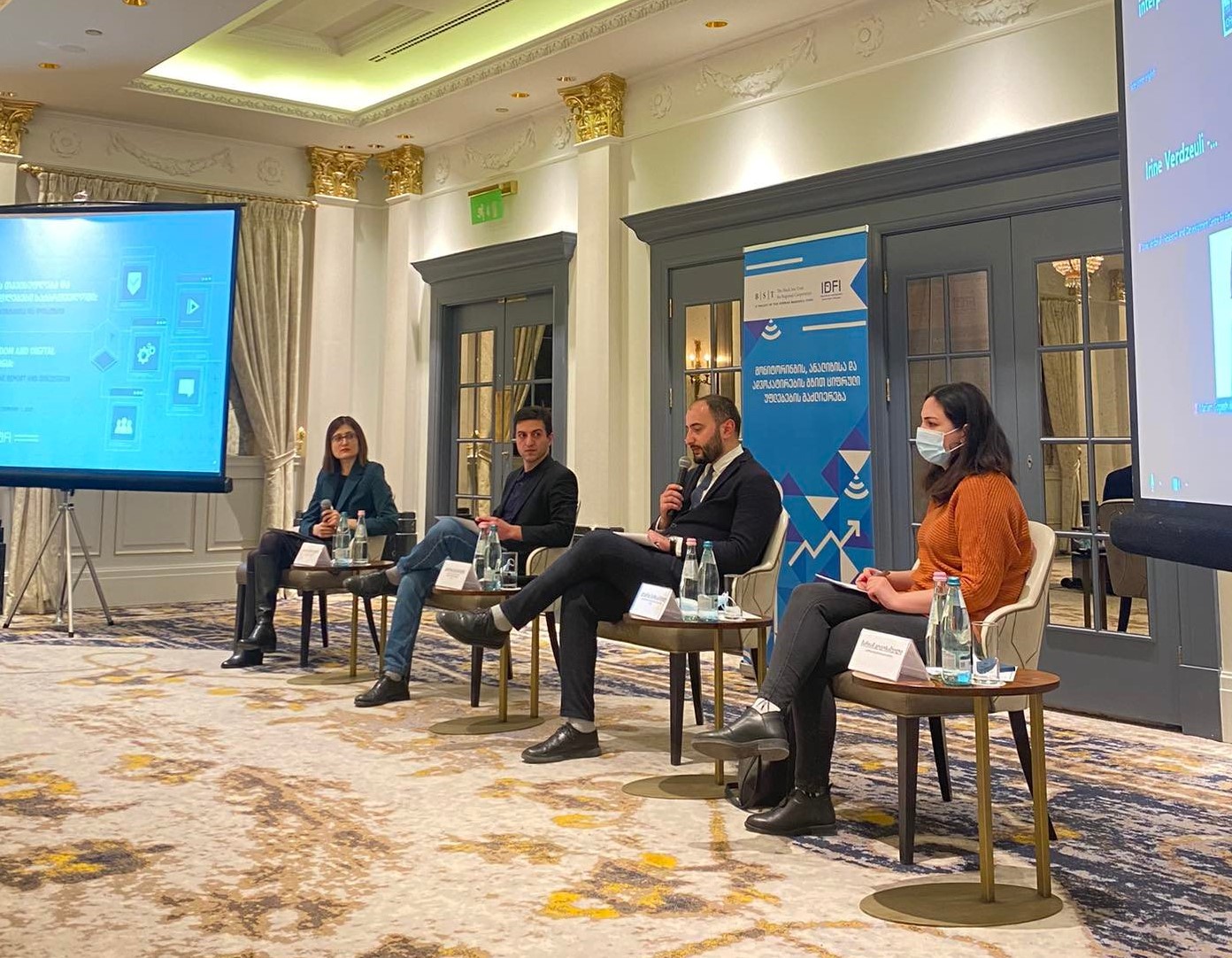


 On February 1st, Institute for Development of Freedom of Information (IDFI) with the support of Black Sea Trust for Regional Cooperation (BST) held a presentation and panel discussion about the report on Internet Freedom and Digital Rights in Georgia.
On February 1st, Institute for Development of Freedom of Information (IDFI) with the support of Black Sea Trust for Regional Cooperation (BST) held a presentation and panel discussion about the report on Internet Freedom and Digital Rights in Georgia.
IDFI’s report reviews the main challenges of digital rights, including access to the internet and digital security, privacy, and freedom of expression.
Opening remarks were made by Teona Turashvili, Internet and Innovation Direction Head at IDFI. Key findings and recommendations of the report were presented by Giorgi Davituri, Media and Freedom of Expression Direction Head at IDFI.
The participants of the panel discussion were the Chairman of Georgian Democratic Initiative (GDI), Eduard Marikashvili, and the Executive Director of the Georgian Charter of Journalistic Ethics, Mariam Gogosashvili.
The format of the event was hybrid and both in-person attendees and zoom participants had the opportunity to engage in the panel discussion about the challenges in the regulation of digital rights in Georgia. The panelists presented recommendations and opinions on approaches to overcome observed challenges. The representatives of civil society, private sector, media, and academia, as well as information and communication technology (ICT) experts, attended the event.
Key findings and recommendations presented by IDFI were the following:
- The current legal model of restricting Internet content risks unjustified and disproportionate restrictions on receiving and disseminating information via the Internet.
- The rights and obligations of the ISPs and domain registrators in terms of restricting Internet content are not clearly defined.
- The current model for restricting Internet content is not transparent. Quantitative and qualitative data on blocked websites/information and requesting institutions are unavailable in Georgia.
- Georgian law allows the Communications Commission to appoint a special manager for an ISP. The institution of the special manager has not been modified in accordance with the conclusions of the Venice Commission.
IDFI’s report offers the following recommendations to overcome the observed challenges:
- The legal model for blocking and filtering Internet content must be defined with sufficient clarity.
- Clearly define the rights and obligations of internet service providers;
- Define the authorized entities/persons and standards in charge of the appeals to block internet “content” from users
- Establish the role of the entities authorized to make and address inadmissible products, as well as the quality standard of information provided to the service provider; the standards for admissible evidence, and the procedural guarantees accompanying the process.
- Transparency of content blocking and filtering on the Internet should be increased. Periodic reports on the use of this mechanism should be compiled and published. The minimal requirements for these reports need to be defined.
- The existing model for the appointment of a special manager at an electronic communications company should be abolished or established per the recommendations of the Venice Commission.